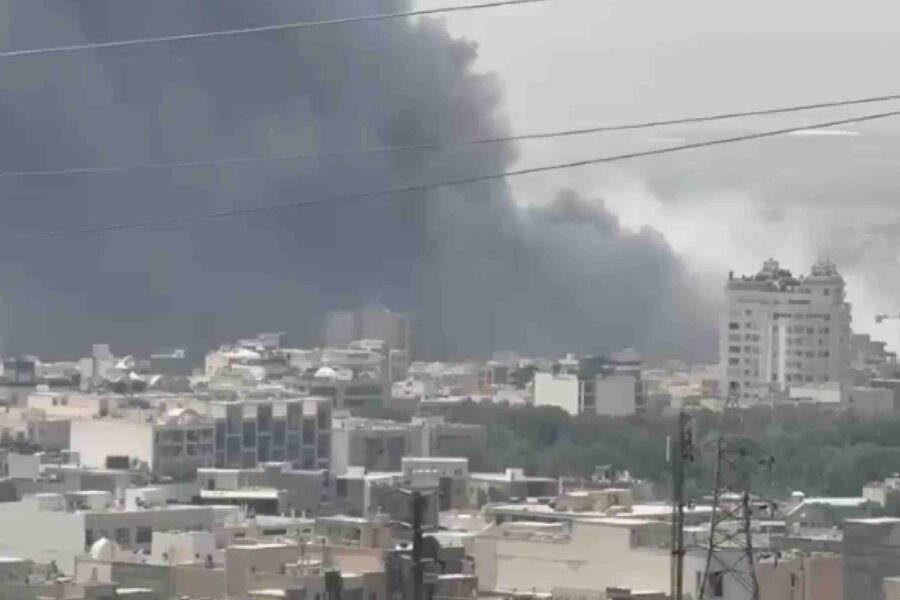Politics
JUST IN: IRGC Headquarters Pounded By New Wave Of Strikes

The headquarters of Iran’s notorious Revolutionary Guard Corps (IRGC) was pounded with a new wave of strikes on Monday, killing scores of soldiers and jeopardizing Iran’s ability to launch counterstrikes against the U.S. and Israel while officials assess damage done to the country’s three nuclear enrichment facilities.
The strike, which hit deep inside Tehran, appeared to be a direct hit. Smoke billowed from the site where the IRGC headquarters once stood, and a source within Israel’s government told the Jerusalem Post that hundreds of IRGC soldiers were killed in the attack.
“Over 50 fighter jets” targeted and struck “military command centers belonging to the Iranian regime. The sites struck included missile and radar production sites and missile storage infrastructure in Tehran,” the Israeli Defense Force (IDF) later confirmed.
The IRGC is perhaps the most notorious armed forces unit on earth, one that carries out repression of political dissent on behalf of Ayatollah Ali Khamenei. The Guard also operates Evin Prison, a black site known for housing political opponents of the regime, and which was also hit with Israeli missiles on Monday.
The Basij, a paramilitary unit within the IRGC, was also struck in the assault, IDF Spokesman Brig. Gen. Effie Defrin said in a press conference shortly after the latest strike. Israel’s Defense Minister, Israel Katz, promised that Israel would continue “striking regime targets” in the “heart of Tehran, with unprecedented force.”
“It looks like they hit a commercial center really heavily, I saw at least eight different impact clouds,” a resident told CNN about the strike in Tehran. “Jordan Street was heavily hit.”
Another eyewitness told CNN: “This was the worst series of explosions yet. It was terrifying.”
Shahid Beheshti University, a prestigious Iranian school in Tehran, was also struck, according to state-run Mehr News Agency.
WATCH:
Israel’s targets appeared to be any and all Iranian forces that would be tasked with launching counterattacks since the U.S. airstrikes on Sunday. Within hours of the attack, Iran vowed retaliation, including the potential activation of sleeper cell agents already positioned within the U.S.
“For every shot fired at the Israeli home front, the Iranian dictator will be punished, and the strikes will continue with full force,” Katz stated.
A watchdog with the United Nations said the U.S. strike on Fordow — an Iranian uranium enrichment facility deep underground — likely caused “very significant damage.” Satellite photos show the facility’s white roof, which was buried beneath dozens of feet of concrete and mountainside, exposed as a result of U.S. “bunker buster” bombs.
President Trump on Monday floated the possibility of “regime change” in a Truth Social post, a remark that Press Secretary Karoline Leavitt said was not intended to serve as a mission statement but rather a reflection of the widely shared belief that Khamenei is powerless to lead his country toward peace.
“The president was just simply raising a question that I think many people around the world are asking,” she said on Fox News Monday morning.
She added: “If they refuse to engage in diplomacy moving forward, why shouldn’t the Iranian people rise up against this brutal terrorist regime?”

